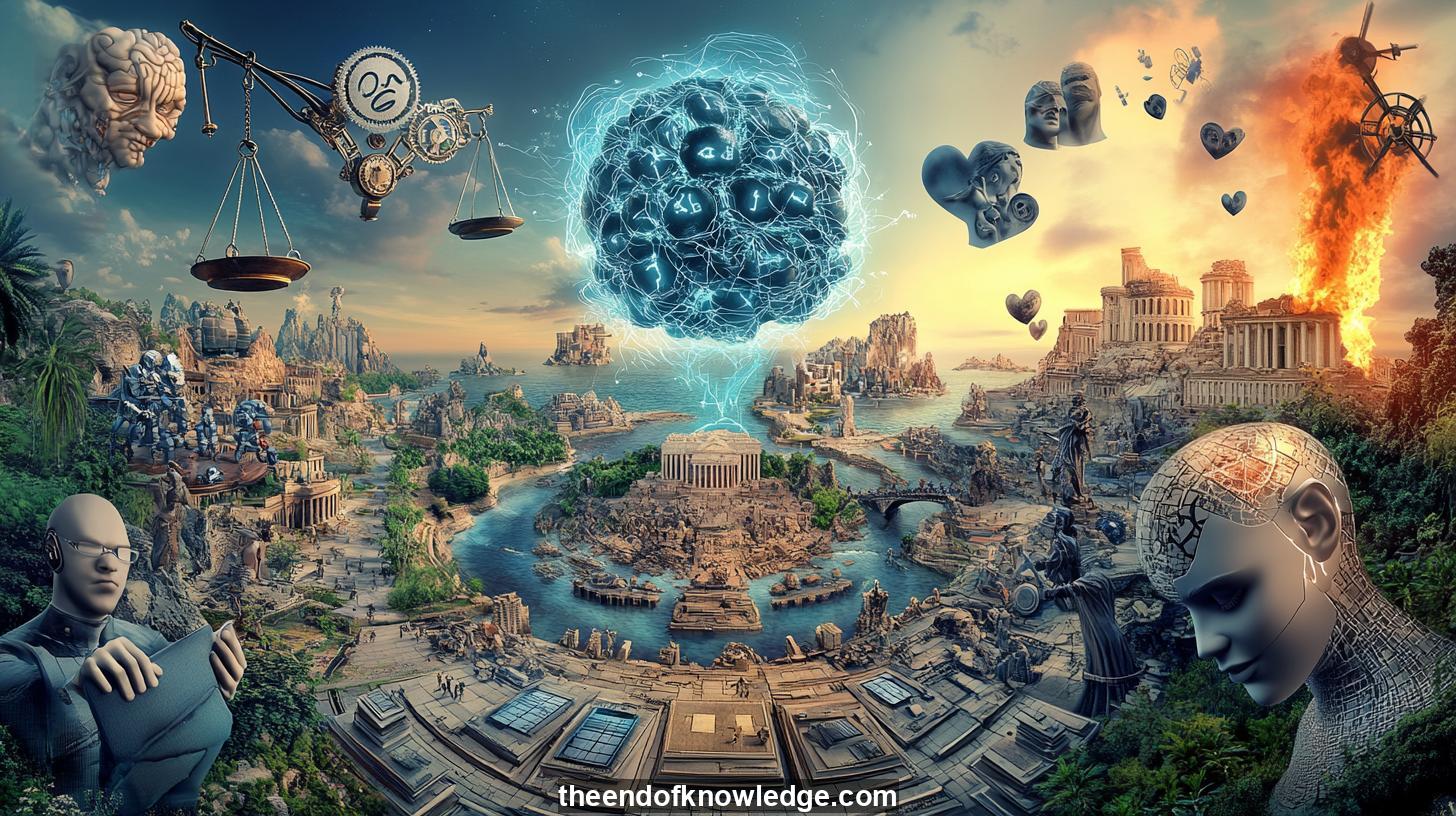Ai responsible : A necessary approach and design for a new era-where people are first.
graph LR
classDef main fill:#f0f0f0, font-weight:bold, font-size:16px;
classDef ethics fill:#ffd6a5, font-weight:bold, font-size:14px;
classDef regulation fill:#a5d6ff, font-weight:bold, font-size:14px;
classDef bias fill:#ffa5a5, font-weight:bold, font-size:14px;
classDef human fill:#c8a5ff, font-weight:bold, font-size:14px;
classDef global fill:#a5ffc8, font-weight:bold, font-size:14px;
A[Vault7-56] --> B[AI evolution: deep learning,
generative models. 1]
A --> C[Ethical AI prevents misuse,
harm. 2]
A --> D[Historical tech disruptions
require responsibility. 3]
A --> E[Regulation ensures ethical
AI development. 4]
A --> F[Over-regulation risks
innovation stifling. 5]
A --> G[AI biases cause unfair
decision-making. 6]
C --> H[Ethical frameworks ensure
AI accountability. 7]
C --> I[Education needs ethical
AI training. 8]
C --> J[Profit motives conflict
with ethics. 11]
C --> K[Prioritize human well-being
over profit. 29]
E --> L[Global cooperation challenged
by diversity. 9]
E --> M[Europe sets responsible
AI standards. 10]
E --> N[Ethical governance requires
shared standards. 23]
G --> O[Bias exacerbates social
inequalities. 26]
G --> P[Healthcare/justice AI needs
ethical care. 25]
A --> Q[AI complements human
capabilities. 13]
Q --> R[AI alignment with
human values. 14]
Q --> S[AI impacts employment,
labor markets. 19]
Q --> T[AI raises human identity
questions. 28]
A --> U[Transparency builds trust,
accountability. 20]
U --> V[AI must respect human
rights. 21]
U --> W[Environmental impact of
AI development. 22]
A --> X[Public awareness enables
informed decisions. 18]
X --> Y[Public engagement ensures
diverse perspectives. 27]
A --> Z[Continuous dialogue addresses
evolving ethics. 30]
class A main;
class C,H,I,J,K ethics;
class E,L,M,N regulation;
class G,O,P bias;
class Q,R,S,T human;
class L,M,N global;
Resume:
The discussion revolves around the evolution and implications of artificial intelligence (AI), particularly focusing on responsible AI and its ethical dimensions. The conversation begins with an introduction to the topic, highlighting the rapid advancement of AI technologies and their profound impact on society. The speaker emphasizes the need for ethical considerations in AI development, citing historical disruptions caused by technological advancements, such as the rise of deep learning and generative AI models like ChatGPT. These technologies, while powerful, raise concerns about their potential misuse, bias, and impact on human rights.
The dialogue delves into the importance of regulation and governance in AI, acknowledging the tension between innovation and ethical constraints. The speaker argues that regulation is necessary to ensure AI technologies are developed and deployed responsibly, but also warns against over-regulation that could stifle innovation. Examples are given of AI systems causing harm, such as biased decision-making in justice and healthcare, underscoring the need for ethical frameworks and accountability mechanisms. The speaker also highlights the role of education in shaping a more ethical AI landscape, suggesting that future professionals should be trained in both the technical and ethical aspects of AI.
The conversation touches on the global nature of AI development, with references to European regulations and the challenges of creating unified ethical standards across diverse societies. The speaker critiques the profit-driven motivations of many tech companies, arguing that ethical considerations should take precedence over economic interests. Additionally, the discussion explores the philosophical implications of AI, questioning whether machines can truly possess consciousness or intelligence akin to humans. The speaker concludes by advocating for a balanced approach to AI development, where technology complements human capabilities without undermining human agency or ethical values.
Throughout the dialogue, the speaker emphasizes the need for ongoing debate and collaboration among stakeholders, including policymakers, technologists, and ethicists, to navigate the complexities of AI responsibly. The ultimate goal, as articulated, is to harness AI as a tool for creating a better world, ensuring that its development aligns with human values and promotes equity and justice.
30 Key Ideas:
1.- AI has evolved rapidly, with significant advancements in deep learning and generative models like ChatGPT.
2.- Ethical considerations in AI development are crucial to prevent misuse and harm.
3.- Historical technological disruptions highlight the need for responsible innovation.
4.- Regulation is necessary to ensure AI technologies are developed and deployed ethically.
5.- Over-regulation could stifle innovation, requiring a balanced approach.
6.- AI systems can perpetuate biases, leading to unfair decision-making in justice and healthcare.
7.- Ethical frameworks and accountability mechanisms are essential for responsible AI.
8.- Education should integrate ethical training for future AI professionals.
9.- Global cooperation is challenging due to diverse societal values and regulations.
10.- European regulations aim to set standards for responsible AI development.
11.- Profit-driven motivations often conflict with ethical considerations in tech companies.
12.- The philosophical question of whether machines can possess consciousness remains debated.
13.- AI should complement human capabilities rather than replace them.
14.- Ensuring AI aligns with human values is critical for its ethical development.
15.- Collaboration among policymakers, technologists, and ethicists is vital for responsible AI.
16.- AI has the potential to create a better world if developed responsibly.
17.- Ethical AI development requires balancing innovation with societal well-being.
18.- Public awareness of AI's ethical implications is essential for informed decision-making.
19.- The impact of AI on employment and labor markets must be carefully managed.
20.- Transparency and explainability in AI systems are necessary for trust and accountability.
21.- AI systems must be designed to respect human rights and dignity.
22.- The environmental impact of AI development should not be overlooked.
23.- Ethical AI governance requires international cooperation and shared standards.
24.- Education and critical thinking are key to navigating the ethical challenges of AI.
25.- The integration of AI in healthcare and justice requires careful ethical consideration.
26.- Bias in AI systems can exacerbate existing social inequalities.
27.- Public engagement in AI policy-making ensures diverse perspectives are considered.
28.- The development of AI raises fundamental questions about human identity and purpose.
29.- Responsible AI development must prioritize human well-being over economic interests.
30.- Continuous dialogue and adaptation are necessary to address the evolving ethical landscape of AI.
Interviews by Plácido Doménech Espí & Guests - Knowledge Vault built byDavid Vivancos 2025
 >
>